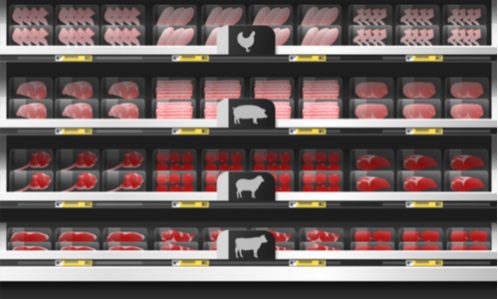
By: Daniel J. Gilman (Truth On The Market)
On September 11, the Federal Trade Commission (FTC) provided feedback endorsing a proposed rule by the U.S. Department of Agriculture (USDA). This rule aims to clarify what qualifies as unfair practices under the Packers and Stockyards Act (PSA), which is designed to ensure fair competition and trade practices that protect farmers, ranchers, growers, and consumers.
In theory, “fairness” is a worthy concept—or at least a just one. And those subject to regulations should comply with the law. But why is the FTC intervening to downplay the significance of competitive harm in the USDA’s implementation of the PSA?
Packers and stockyards? Indeed. Those familiar with antitrust matters (and the FTC’s enforcement both within and beyond antitrust) are aware that the PSA is one of the few statutory exceptions to the FTC’s Section 5 authority. In other words, the commission is tasked with preventing “persons, partnerships, or corporations . . . from using unfair methods of competition in or affecting commerce and unfair or deceptive acts or practices in or affecting commerce” in most sectors of the economy.
Most, but not all.
The FTC’s jurisdiction doesn’t extend to certain entities, like banks, federal credit unions, savings and loan associations, or both foreign and domestic air carriers. Moreover, with a narrow exception, it doesn’t apply to individuals, partnerships, or corporations “to the extent that they are subject to the Packers and Stockyards Act, 1921.” Interesting.
That said, the FTC may exercise some authority over these businesses under specific conditions. For example, if a case involves “meat, meat food products, livestock products in unmanufactured form, or poultry products . . . and when the Secretary [of Agriculture] requests that the Commission conduct investigations and provide reports.” So, despite the PSA carveout, the FTC may still have a role in some of the commerce governed by the PSA, at least under certain circumstances.
But looking more critically, the FTC’s involvement remains limited. The narrow scope of potential jurisdiction doesn’t invalidate the general rule—not by a long shot. A search of the FTC’s enforcement actions for “packers,” “stockyards,” or “packers & stockyards” yields no results. Even searches for “meat” or “livestock” come up empty…
Featured News
Big Tech Braces for Potential Changes Under a Second Trump Presidency
Nov 6, 2024 by
CPI
Trump’s Potential Shift in US Antitrust Policy Raises Questions for Big Tech and Mergers
Nov 6, 2024 by
CPI
EU Set to Fine Apple in First Major Enforcement of Digital Markets Act
Nov 5, 2024 by
CPI
Six Indicted in Federal Bid-Rigging Schemes Involving Government IT Contracts
Nov 5, 2024 by
CPI
Ireland Secures First €3 Billion Apple Tax Payment, Boosting Exchequer Funds
Nov 5, 2024 by
CPI
Antitrust Mix by CPI
Antitrust Chronicle® – Remedies Revisited
Oct 30, 2024 by
CPI
Fixing the Fix: Updating Policy on Merger Remedies
Oct 30, 2024 by
CPI
Methodology Matters: The 2017 FTC Remedies Study
Oct 30, 2024 by
CPI
U.S. v. AT&T: Five Lessons for Vertical Merger Enforcement
Oct 30, 2024 by
CPI
The Search for Antitrust Remedies in Tech Leads Beyond Antitrust
Oct 30, 2024 by
CPI